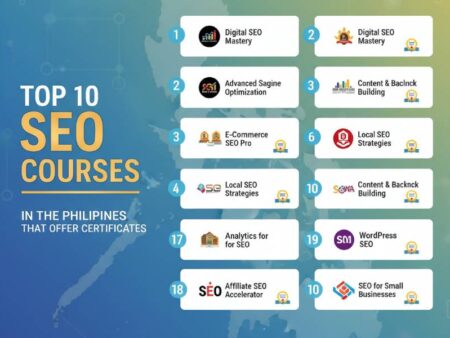
In today’s digital landscape, ranking on Google isn’t just about throwing keywords into your content and hoping for the best. It’s about showing search engines — and users — that you’re a true expert in your field. That’s where topical authority comes in.
Topical authority means becoming the go-to resource for a specific subject or niche. Think of it like being the trusted expert in your industry. Instead of being a generalist, you’re the master of a particular topic — and search engines love that. But how do you build this kind of authority while sticking to ethical, white hat SEO practices? That’s what this article is all about.
Let’s dive in.
What is Topical Authority?
Topical authority is when a website is recognized as a trusted, comprehensive source of information on a specific subject. For example, if your site covers “vegan recipes” extensively — with everything from beginner guides to detailed ingredient breakdowns — you’ll naturally be seen as a topical authority on vegan cooking.
Google’s algorithms are getting smarter. They now look beyond just keywords. They evaluate the depth and breadth of your content to determine whether you truly understand the topic.
Why It Matters
- Higher rankings: Google rewards websites that show deep topical coverage.
- More organic traffic: Users stay longer and visit more pages if your site covers everything they need.
- Better user trust: People are more likely to return or convert when they trust your knowledge.
The Role of White Hat SEO
White hat SEO refers to optimization techniques that follow search engine guidelines. These include creating valuable content, building quality backlinks, and improving user experience. Unlike black hat SEO, which tries to game the system, white hat SEO builds long-term trust and rankings.
Combining white hat practices with a focus on topical authority creates a sustainable path to organic growth.
Step-by-Step Guide to Building Topical Authority with White Hat SEO
Let’s break down the process into actionable steps.
1. Define Your Niche Clearly
Before anything else, get laser-focused on your niche. You can’t be an authority on everything — but you can dominate a specific space.
Ask yourself:
- What am I most knowledgeable or passionate about?
- What specific problems can I solve better than competitors?
- Is there long-term interest in this topic?
For example, instead of targeting “fitness,” narrow it down to “bodyweight training for beginners.” That’s a clearer, more manageable niche.
2. Perform Deep Keyword and Topic Research
Once your niche is defined, you need to find out:
- What people are searching for
- How competitors are covering the topic
- Where the content gaps are
Use tools like:
- Google Keyword Planner
- Ahrefs
- SEMrush
- AnswerThePublic
- Google’s “People Also Ask” box
Build a topical map — a visual layout of your core topic and related subtopics. For example, a topical map for “vegan recipes” might include:
- Vegan breakfast ideas
- High-protein vegan meals
- Vegan meal prep
- Vegan substitutes
This is the backbone of your content strategy.
3. Create Pillar and Cluster Content
This strategy is fundamental for building topical authority.
- Pillar content: A comprehensive, in-depth guide on a core topic (e.g., “The Ultimate Guide to Vegan Cooking”).
- Cluster content: More specific articles that support the pillar (e.g., “10 Vegan Breakfast Recipes,” “Top Vegan Protein Sources”).
Each cluster piece should link back to the pillar page and vice versa. This internal linking signals to Google that your site covers the topic thoroughly.
4. Write Quality, Human-Centered Content
This is where many fail. Writing content for algorithms isn’t the goal — you’re writing for humans.
Here’s how to do it well:
A. Be Original
Don’t regurgitate what’s already out there. Add your unique perspective, experience, or case studies.
B. Be Comprehensive
Google loves thorough content that answers all related questions. Cover every angle of your topic in detail.
C. Be Clear and Engaging
Use a friendly, conversational tone. Break up your text with headings, bullet points, and visuals. Make it easy to digest.
D. Update Content Regularly
Stale content loses its power. Update facts, add new sections, and refine older posts every few months.
5. Optimize On-Page SEO (White Hat Style)
Don’t overlook the basics of ethical SEO optimization:
- Use your primary keyword in the title tag, H1, and first paragraph
- Include semantic keywords (related terms) naturally throughout
- Use descriptive meta descriptions (not keyword-stuffed)
- Optimize for mobile and page speed
- Add alt text to images
- Use clean URLs (e.g., /vegan-breakfast-ideas)
All of this tells search engines that your content is both relevant and user-friendly.
6. Build Internal Links Thoughtfully
Internal linking isn’t just about navigation. It helps distribute authority across your website and keeps users engaged.
Here’s how to do it right:
- Link from older posts to new relevant ones
- Use descriptive anchor text (not “click here”)
- Avoid linking to the same page too many times in one post
A well-structured internal linking strategy helps Google crawl your site more efficiently and shows the relationship between topics.
7. Acquire High-Quality Backlinks
Backlinks are still one of the top ranking factors — but quality beats quantity. Here are white hat methods to earn them:
- Guest posting on reputable sites
- Creating original research or infographics
- Collaborating with influencers or bloggers
- Getting listed in niche directories
- Using HARO (Help A Reporter Out) to be cited in articles
Avoid shady link farms or buying links. Google is quick to penalize unnatural backlink profiles.
8. Improve User Experience (UX)
Topical authority isn’t just about content — it’s about how users experience that content.
To boost UX:
- Use clear navigation (topic categories, breadcrumbs, menus)
- Keep design clean and responsive
- Avoid intrusive pop-ups
- Use related post widgets to keep users engaged
- Improve site speed
The longer users stay on your site and interact with more pages, the more authority your site builds in Google’s eyes.
9. Use Structured Data (Schema Markup)
Schema markup helps Google understand your content better. For example:
- Use Article schema for blog posts
- Use FAQ schema for commonly asked questions
- Use How-To schema for tutorials
This can enhance your presence in search results with rich snippets, leading to higher click-through rates and visibility.
10. Monitor, Measure, and Refine
What gets measured gets improved. Use tools like:
- Google Analytics (track traffic, bounce rates, time on page)
- Google Search Console (track search performance and indexing issues)
- SEO tools like Ahrefs or SEMrush to monitor keyword rankings and backlinks
Ask yourself:
- Which content performs best?
- Are there gaps I haven’t covered yet?
- What questions are users asking that I haven’t answered?
Refine your strategy based on data — not guesses.
Common Mistakes to Avoid
Even with the best intentions, some pitfalls can hurt your topical authority:
- Covering too many unrelated topics: Stick to your niche.
- Publishing thin content: Aim for quality, not quantity.
- Ignoring user intent: Create content that actually solves user problems.
- Using AI without editing: Always add a human touch to AI-generated drafts.
- Buying backlinks: It’s risky and often leads to penalties.
Conclusion
Building topical authority with white hat SEO is not a quick win — it’s a long-term investment. But when done right, it snowballs. As your site becomes more authoritative, rankings improve, backlinks come naturally, and users trust you.
Focus on helping your audience, answering their questions thoroughly, and staying consistent. Google’s goal is to serve users the best information — so make sure you are that source.
Keep learning. Keep optimizing. And most importantly — keep delivering value.
Frequently Asked Questions (FAQ)
What is topical authority?
Topical authority is a website’s perceived expertise in a specific subject area, earned through high-quality, in-depth content that comprehensively covers the topic over time.
Why is topical authority important for SEO?
It boosts search engine rankings by signaling expertise and trustworthiness, helping content appear more prominently in search results, especially for competitive or niche keywords.
How do you build topical authority?
Create a content cluster strategy—publishing comprehensive, interlinked articles around a core topic—while ensuring quality, relevance, and consistent updates based on user intent and keyword research.
How long does it take to build topical authority?
It varies by niche and competition but generally takes several months of consistent publishing, backlink building, and user engagement to establish noticeable authority in a topic.
Can a new website gain topical authority quickly?
Yes, by focusing on a narrow niche, producing high-quality, well-structured content, and earning relevant backlinks, a new site can gain authority faster than broader-topic sites.
What Are You Waiting, Enroll Now!
Learn More!Subscribe to this Page
Average rating 5 / 5. Vote count: 212
Share on Social Media
Related Posts
- The Power of Long-Tail Keywords in SEO Writing
- Case Study: How We Increased Organic Traffic by 312% Through White-Hat Link-Building
- How to Conduct Keyword Research: The Complete Guide
- Spun Content Detection Algorithms and Google's NLP Models
- How to Get Your Website Higher on Google: WSP Guide








